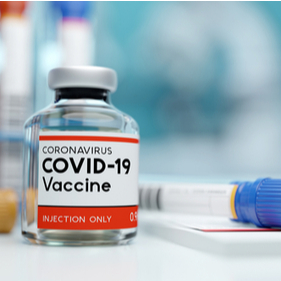Can a Company Require its Employees to Get a COVID-19 Vaccine?

Summary: Employers need to understand the rules on mandating the COVID-19 vaccine for its workforce. While an employer can require its employees to get the vaccine before returning to work, several exceptions exist. The two major exceptions are for employees with ADA disabilities and employees with sincere religious beliefs. Employees represented by unions or working for the government may also have additional protections.
Over the last few weeks we have heard some promising news regarding a vaccine for COVID-19. However, once the vaccine is approved for wide-spread use, employers will need to navigate some thorny issues.
Can an employer require employees to be vaccinated for COVID-19?
Yes, but with some exceptions (discussed below). During the pandemic, the EEOC has taken the position that an employee infected with COVID-19 creates a “direct threat” of harm to other employees. Thus, subject to a few exceptions, requiring employees to get the COVID-19 vaccine does not violate the employment discrimination laws that typically prohibit employers from making health inquiries or demands of their employees.
What are the exceptions?
- If any employee has an ADA disability that prevents him/her from receiving a COVID-19 vaccine, he/she should be excluded from a COVID-vaccine mandate unless the employer can establish an undue hardship (i.e., significant difficulty or expense).
- Employers are permitted to ask the employee for sufficient documentation to determine whether the employee has a disability and/or needs to be excluded from the COVID-19 vaccine for medical reasons.
- If an employee notifies the company that his or her sincerely held religious belief, practice, or observance prevents him/her from receiving a COVID-19 vaccine, then the employee should be excluded from a COVID-vaccine mandate unless the employer can establish an undue hardship (i.e., “more than de minimus cost”). This standard is lower than the standard for undue burden under the ADA.
- Personal preference and/or social, political, or economic philosophies are not considered “religious” beliefs under the EEOC guidelines.
- If an employee works for a governmental agency or is a member of a union, then the employee may have additional rights that may restrict an employer’s ability to mandate a COVID-19 vaccine.
What should employers do now?
Now is the time for employers to begin thinking about how they will address a COVID-19 vaccine. Unfortunately, it will take many months (or more) before the vaccine is approved and available for widespread use. During that time, most private employers (with the exception of those with front-line or healthcare workers) will have the benefit of watching from the sidelines as the initial rollout of the vaccine occurs. What is learned during this process will be valuable to most private employers when implementing a plan in the near future. We also expect that during the next few months other agencies (such as OSHA) will put forth safety regulations that will provide additional guidance to employers.
Scott A. Mirsky, Principal at Paley Rothman, provides commentary for Fox 5 DC on the question: “Can an Employer Mandate a COVID-19 Vaccine for its Employees?”
If you have questions regarding how to handle employment situations during the COVID-19 emergency, please contact the employment attorneys at Paley Rothman.
